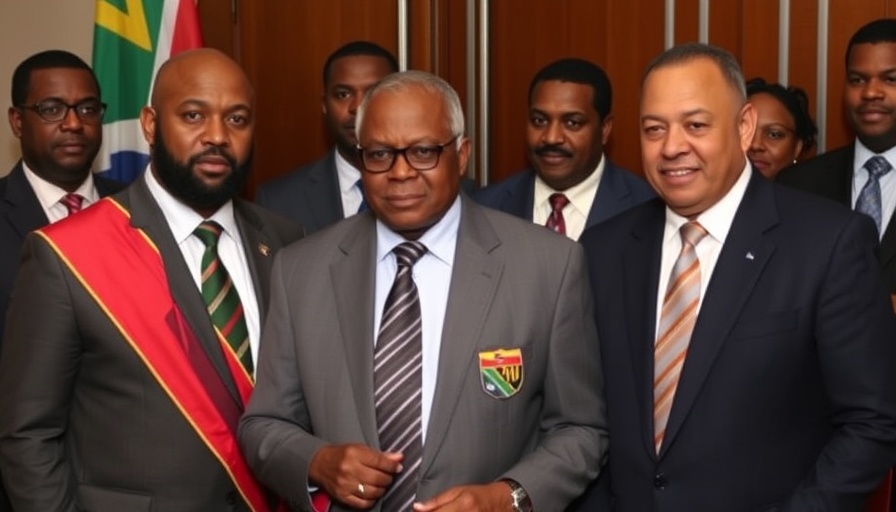
The Fluency of Political Alliances: What Lies Ahead for the DA?
In the realm of South African politics, recent upheavals within the Alliance government have prompted significant questions about the future of the Democratic Alliance (DA). Following the recent budget presentation, ANC officials are deliberating whether the DA has distanced itself from the GNU (Government of National Unity) by fervently opposing key budget allocations. This perceived 'betrayal' could signal a precarious trajectory for the DA as political realignments unfold with national elections on the horizon.
Convoluted Coalition Dynamics: The Evolving Role of the ANC and DA
The current political landscape in South Africa is a tapestry woven with various threads of coalition politics, where the ANC and the DA's interactions could reshape the governance narrative. Analysts suggest that the ANC's assertions reflect a broader concern about disunity amidst coalition governance. The repercussions of such tensions may extend beyond immediate political rivalries, influencing public trust in governance and complicating service delivery, a pressing concern among South African citizens. As the government grapples with issues like the Eskom crisis and soaring unemployment rates, the extent of political cohesion will be tested.
The Implications of Budget Decisions on Political Alliances
Budget allocations are more than mere financial plans; they symbolize the values and priorities of a government. ANC politicians criticize the DA's recent opposition, arguing that it could fracture the GNU, thereby threatening not only political stability but also socio-economic recovery efforts. With the backdrop of service delivery protests and ongoing corruption investigations, the necessity for collaboration becomes paramount. Maintaining open dialogue among coalition partners could ensure that policies remain focused on critical issues like education reforms, public health campaigns, and the implementation of the National Health Insurance (NHI).
Public Sentiment: The Role of Citizens in Political Accountability
The stakes have never been higher for South African citizens when it comes to holding elected officials accountable. As budget decisions without adequate public engagement could foster discontent, civil society demands transparency. The DA's challenge is to prove its relevance and ability to effectively represent the interests of constituents, particularly in regions where service delivery has faltered. As public confidence wanes, the strategic maneuvering within the ANC and DA could offer citizens a clear view of who is genuinely committed to addressing pressing issues.
Future Predictions Amidst Political Allegiances
As the political landscape evolves, future predictions remain cautiously optimistic. The DA's approach to galvanizing public support hinges on its ability to present alternatives to the status quo while navigating the complex dynamics of the GNU. If the ANC acknowledges the necessity of cooperation despite recent tensions, it may result in a more effective government that prioritizes citizens' needs, illustrating a potential to transcend partisan divides in favor of national unity.
Shared Governance: Learning from the Past
Historically, the entanglement of political alliances in South Africa has been marked by volatility. The renegotiation of power and loyalty within the governing parties offers critical lessons. The current challenge is to foster an environment that prioritizes effective governance over mere political survival. The role of the DA as a formidable opposition party in the legislature will be pivotal in holding the ANC accountable while bringing forth meaningful reforms for public welfare.
In conclusion, as we brace for the upcoming national elections, it is imperative for all parties to remember that collaboration is not merely political rhetoric but a vital necessity for genuine governance. South Africans deserve a government that is truly committed to public welfare — an ideal that only a united political front can aspire to fulfill. Participation in the upcoming electoral process will be crucial for citizens; their voices must drive the trajectory of the country's future.
 Add Row
Add Row  Add
Add 




Write A Comment